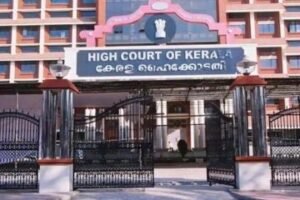Contravention Of A Statute Not Linked To Public Policy Or Public Interest Cannot Be A Ground To Set Aside An Arbitral Award
Case: Delhi Airport Metro Express Pvt. Ltd. vs. Delhi Metro Rail Corporation Ltd.
Coram: Justices L. Nageswara Rao and S. Ravindra Bhat
Case No: CA 5627 of 2021
Court Observation: This Court has in several other judgments interpreted Section 34 of the 1996 Act to stress on the restraint to be shown by courts while examining the validity of the arbitral awards. The limited grounds available to courts for annulment of arbitral awards are well known to legally trained minds. However, the difficulty arises in applying the well-established principles for interference to the facts of each case that come up before the courts. There is a disturbing tendency of courts setting aside arbitral awards, after dissecting and reassessing factual aspects of the cases to come to a conclusion that the award needs intervention and thereafter, dubbing the award to be vitiated by either perversity or patent illegality, apart from the other grounds available for annulment of the award. This approach would lead to corrosion of the object of the 1996 Act and the endeavours made to preserve this object, which is minimal judicial interference with arbitral awards. That apart, several judicial pronouncements of this Court would become a dead letter if arbitral awards are set aside by categorising them as perverse or patently illegal without appreciating the contours of the said expressions.
Patent illegality should be illegality which goes to the root of the matter. In other words, every error of law committed by the Arbitral Tribunal would not fall within the expression ‘patent illegality’. Likewise, erroneous application of law cannot be categorised as patent illegality. In addition, contravention of law not linked to public policy or public interest is beyond the scope of the expression ‘patent illegality’. What is prohibited is for courts to re-appreciate evidence to conclude that the award suffers from patent illegality appearing on the face of the award, as courts do not sit in appeal against the arbitral award. The permissible grounds for interference with a domestic award under Section 34(2-A) on the ground of patent illegality is when the arbitrator takes a view which is not even a possible one, or interprets a clause in the contract in such a manner which no fair-minded or reasonable person would, or if the arbitrator commits an error of jurisdiction by wandering outside the contract and dealing with matters not allotted to them. An arbitral award stating no reasons for its findings would make itself susceptible to challenge on this account. The conclusions of the arbitrator which are based on no evidence or have been arrived at by ignoring vital evidence are perverse and can be set aside on the ground of patent illegality. Also, consideration of documents which are not supplied to the other party is a facet of perversity falling within the expression ‘patent illegality’.
Section 34 (2) (b) refers to the other grounds on which a court can set aside an arbitral award. If a dispute which is not capable of settlement by arbitration is the subject-matter of the award or if the award is in conflict with public policy of India, the award is liable to be set aside. Explanation (1), amended by the 2015 Amendment Act, clarified the expression ‘public policy of India’ and its connotations for the purposes of reviewing arbitral awards. It has been made clear that an award would be in conflict with public policy of India only when it is induced or affected by fraud or corruption or is in violation of Section 75 or Section 81 of the 1996 Act, if it is in contravention with the fundamental policy of Indian law or if it is in conflict with the most basic notions of morality or justice. In Ssangyong (supra), this Court held that the meaning of the expression ‘fundamental policy of Indian law’ would be in accordance with the understanding of this Court in Renusagar Power Co. Ltd. v. General Electric Co. 6 In Renusagar (supra), this Court observed that violation of the Foreign Exchange Regulation Act, 1973, a statute enacted for the ‘national economic interest’, and disregarding the superior courts in India would be antithetical to the fundamental policy of Indian law. Contravention of a statute not linked to public policy or public interest cannot be a ground to set at naught an arbitral award as being discordant with the fundamental policy of Indian law and neither can it be brought within the confines of patent illegality’ as discussed above. In other words, contravention of a statute only if it is linked to public policy or public interest is cause for setting aside the award as being at odds with the fundamental policy of Indian law. If an arbitral award shocks the conscience of the court, it can be set aside as being in conflict with the most basic notions of justice. The ground of morality in this context has been interpreted by this Court to encompass awards involving elements of sexual morality, such as prostitution, or awards seeking to validate agreements which are not illegal but would not be enforced given the prevailing mores of the day.
The members of the Arbitral Tribunal, nominated in accordance with the agreed procedure between the parties, are engineers and their award is not meant to be scrutinised in the same manner as one prepared by legally trained minds.
As the arbitrator is the sole judge of the quality as well as the quantity of the evidence, the task of being a judge on the evidence before the Tribunal does not fall upon the court in exercise of its jurisdiction under Section 34. As has been held in Ssangyong (supra), mere contravention of substantive law as elucidated in Associate Builders (supra) is no longer a ground available to set aside an arbitral award. The support placed by the Division Bench on the interpretation of Section 28(1)(a) of the 1996 Act as adopted in Associate Builders (supra) is, therefore, no longer good law.
[doc id=9046]
Previous Posts
Second Appeal- High Courts Can Exercise Limited Factual Review Under Section 103 CPC: Supreme Court
Government Should Keep Taxation System Convenient & Simple, Says Supreme Court
Delay In Conducting Disciplinary Enquiry Does Not Ipso Facto Vitiate It: Supreme Court
Fraudulent Practice To Gain Public Employment Cannot Be Countenanced: Supreme Court Upholds Termination Of 38 Workmen By BCCL Download Judgement




